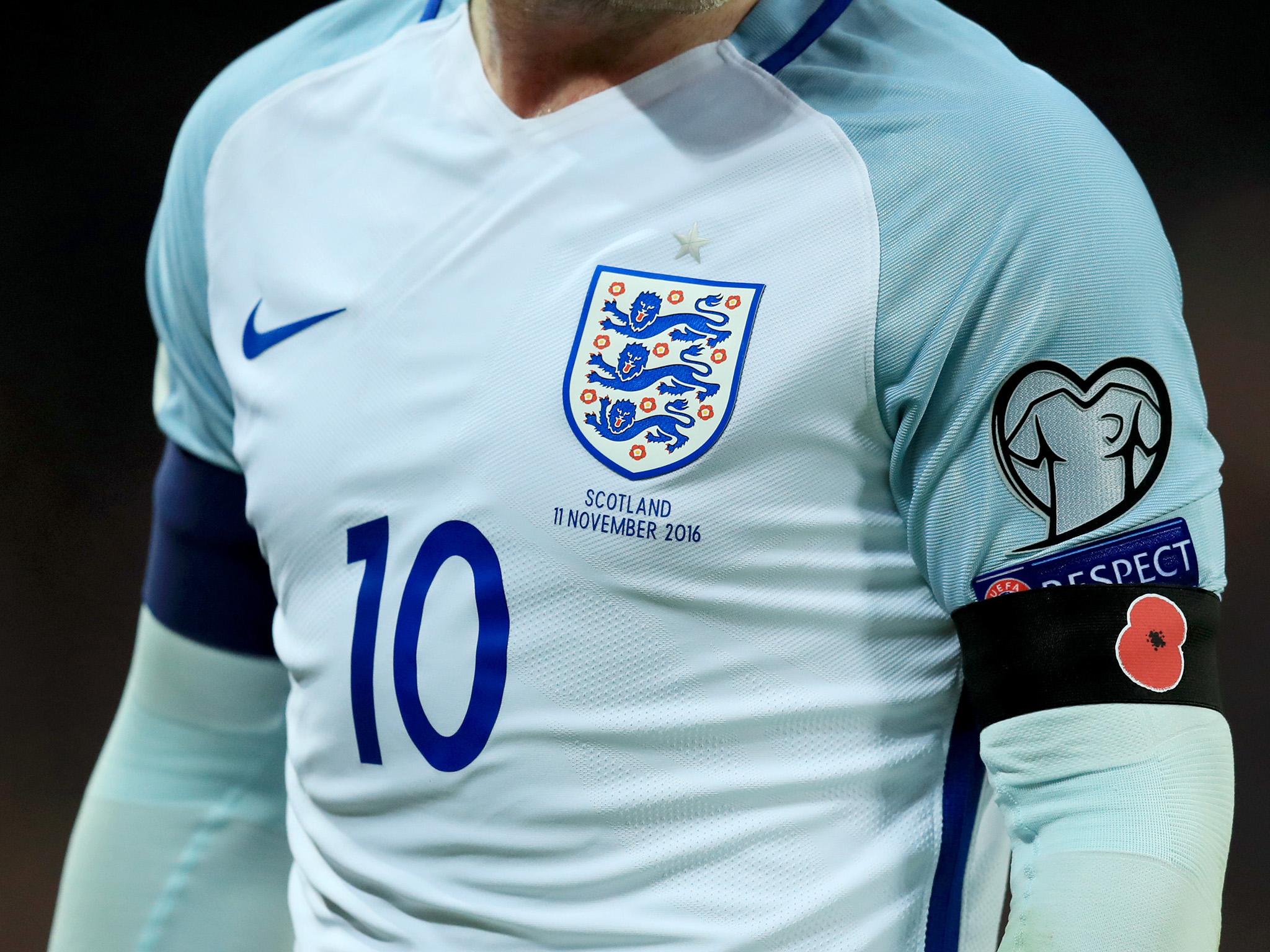FA claims victory in row over players wearing commemorative poppies as Fifa backs down on ban
England, Northern Ireland, Scotland and Wales were all fined by Fifa for wearing the symbol

Your support helps us to tell the story
From reproductive rights to climate change to Big Tech, The Independent is on the ground when the story is developing. Whether it's investigating the financials of Elon Musk's pro-Trump PAC or producing our latest documentary, 'The A Word', which shines a light on the American women fighting for reproductive rights, we know how important it is to parse out the facts from the messaging.
At such a critical moment in US history, we need reporters on the ground. Your donation allows us to keep sending journalists to speak to both sides of the story.
The Independent is trusted by Americans across the entire political spectrum. And unlike many other quality news outlets, we choose not to lock Americans out of our reporting and analysis with paywalls. We believe quality journalism should be available to everyone, paid for by those who can afford it.
Your support makes all the difference.Fifa has backed down in its row with the Football Association and other home nations over the wearing of poppies by players on their shirts in international matches.
England, Northern Ireland, Scotland and Wales were all fined by Fifa for ignoring warnings not to commemorate Armistice Day during their World Cup qualifiers last November.
Fifa’s stance – based on a strict interpretation of its laws against the use of personal, political or religious slogans or symbols – sparked widespread condemnation in Britain, with Prime Minister Theresa May calling it “utterly outrageous” in Parliament.
But now, 10 months after a Fifa disciplinary panel dished out those fines, football’s world governing body has sent its member associations new guidance on law four, the section of the game’s rule book on what players can wear.
In the document, which Press Association Sport has seen, Fifa says certain “initiatives” may appear on players’ kits, along with the usual name, number, team crest and so on.
The document does not provide much clarity on what these “initiatives” might be but says they cannot breach law 12, which refers to foul play and abusive language, and restates law four’s existing criteria which rule out wearing “personal” or “religious...slogans, statements or images”.
This leaves “political”, which Fifa admits “is less clear”, although it obviously rules out slogans and symbols related to political parties and governments.
It adds: “When commemorating a significant national or international event, the sensibilities of the opposing team (including its supporters) and the general public should be carefully considered.”
What this means in practice is that England, or any other team that wants to wear poppies on their shirts to mark Armistice Day, can do so, providing they get their opponents’ permission and inform the organisers of the match.
If England seal qualification for next summer’s World Cup in their next two games in early October, they are set to play Germany in a friendly at Wembley in November and it is understood they have already been given permission by the German FA to wear poppies.
Many will see this as a victory for common sense, particularly as the FA was willing to go to the Court of Arbitration for Sport to contest its £35,000 fine.
As it happens, the fine was never paid and now never will be.
It is understood that the smaller fines levied to the Football Association of Wales, Irish Football Association and Scottish Football Association were also not paid and will now simply be forgotten.
After weeks of self-inflicted damage from the furore surrounding Mark Sampson’s exit as England Women’s manager, this is also a win for the FA and a defeat for Fifa.
Having previously allowed England to wear poppies in a November friendly against Spain, Fifa’s crackdown last year certainly took the home nations by surprise.
Prior to the games, which included England hosting Scotland at Wembley, Fifa general secretary Fatma Samoura wrote to say no “exceptions” would be made to the law, as “Britain is not only country that has been suffering from the result of war”.
This view was repeated a month later when the fines were dished out by the disciplinary panel’s Claudio Sulser who said: “In the stadium and on the pitch, there is only room for sport, nothing else.”
These statements were given short shrift here, though, with both ends of the political spectrum united in their criticism of an organisation that is still fighting to restore its own reputation after recent corruption scandals.
Press Association
Join our commenting forum
Join thought-provoking conversations, follow other Independent readers and see their replies
Comments